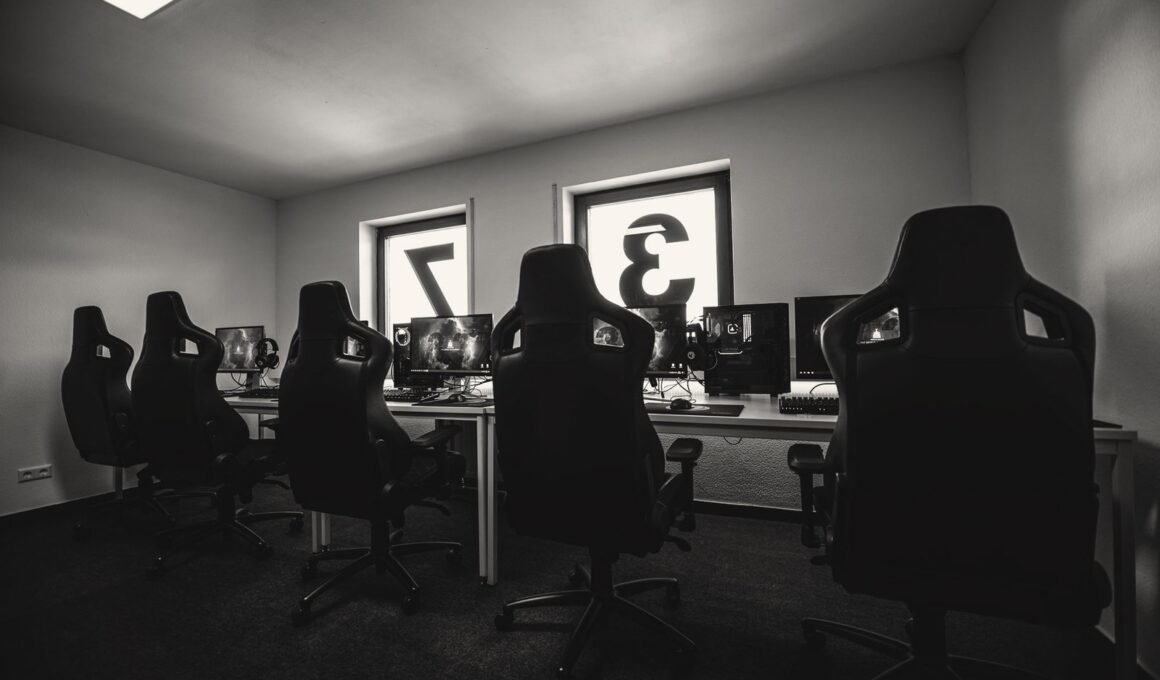MOUNTAIN VIEW, CALIFORNIA – Many parents dismiss video games as pastimes their children will grow out of once they have to deal with the “real world” – an attitude as outdated as the video game consoles they used to play on in between kickball sessions with the other kids on the block. Over the last two decades, advances in CPU processing speed, social media and mobile technology have revolutionized the industry to a degree almost unimaginable to those of us who thought Rubik’s Cube was the height of personal entertainment devices.
Millions of young boys and girls are now direct targets of entire sectors within the video game business. Concepts such as “esports”, multi-player video game tournaments typically played over the Internet by “professional” players, have developed a market large enough to support a viewing audience and has started to attract the attention of the cable networks, who recently “pivoted” to esports programming in lieu of traditional sporting events cancelled because of the pandemic.
According to a new report by social video analytics company Tubular Labs, the trend has not subsided despite gradual easing of public health restrictions and gaming video views on YouTube, alone, have spiked by 57%. Titled Ready Player Two: Gaming and Social Video, Tubular’s report highlights the role that “influencers” are having in bolstering the industry’s reach among the world’s youth and how the expansion of coverage is decreasing the number of “non-gamers” in the targeted demographic.
The report’s title purposefully references a notorious piece of science-fiction literature, called Ready Player One, which introduced the dystopian idea of the metaverse to popular culture as a result of the novel’s association with the “Gamergate” controversy, that erupted three years after its publication on platforms like 4Chan and Reddit, spotlighting gender inequality in the gaming industry.
Gamergate went largely unnoticed by the older generations, who either didn’t understand the underlying causes or found it unexceptional. Remarkably, the dispute persisted until Donald Trump’s appearance on the political scene and Gamergate became the engine for the rise of the so-called “alt-right” faction, led by social media influencers like Mike Cernovich who described it as “the most important battle of the culture war this century”.
While the market ascendency of the video game industry and its troubled social dynamics might seem like parallel, yet unrelated matters, the latter’s protagonism from the beginning of the Trump era until its bitter culmination in the events of January 6th and their critical role in the censorship and de-platforming campaigns carried out by the big social networks, cannot be understood without considering the third and crucial factor – and major players – bringing both of these together as the twin pillars of the metaverse itself.
Gaming the Narrative
Just over a month from now, leading game engine developer Unity Software Inc., will hold a conference called “The Unity for Humanity Summit”. The event’s keynote address will be delivered by rapper Lonnie Rashid Lynn, a.k.a. Common, whose debut album in 1992 was titled “Can I Borrow a Dollar?”.
Outspoken Trump critic and active on social issues like Black Lives Matter, Common stands squarely on the opposite end of the political spectrum as demarcated by the Gamergate scandal, promoting gender and racial equality, which is also reflected in his musical brand, built on the anti-gangsta rap “conscious hip-hop” genre.
The 48-year old rapper’s political inclinations shouldn’t be too surprising, given that his mother Mahalia Hines currently sits on the board of the Obama Foundation and was appointed to the Chicago Public Schools Board of Education (BOE) by Rahm Emanuel in 2011, where the long-time public school teacher served until her retirement in 2019. Hines is also president and board member of her son’s Common Ground Foundation, which partners with Google and Amazon.
In 2018, another non-profit and apparently unincorporated entity formed by Common called The Lynn Group backed a controversial performing arts charter school project called Art In Motion (AIM), which received an update to its 5-year charter by the BOE while Hines was still on it, ignoring significant opposition from the community and accusations of fiscal mismanagement against AIM’s operator, Distinctive Schools.
Unity has come on board the AIM charter school project as the rapper and “the world’s leading platform for creating and operating interactive, real-time 3D content” will likely offer its multiple VR and AR development products to produce the next generation’s digital content creators, who can in turn, potentially make plenty of digital assets that Unity can sell in its Asset Store.
As the company behind the gaming engine that powered Niantic’s Pokémon Go, Google’s augmented reality (AR) tools and Microsoft’s HoloLens, among many other gaming products, Unity controls almost 90% of the emerging AR platforms. The company recently capitalized on its burgeoning success with a $525 million IPO at the end of last year, which yielded a $1.3 billion haul.
Common and Unity are betting that the narratives of gender equality and social justice peppering their brands and the upcoming conference’s marketing materials will be enough to pull the wool over the eyes of their young demographic as they try to marry gaming to the budding social impact markets, where children playing Minecraft or any other video game can, themselves, be assetized.
If children are going to be protected from the unscrupulous designs of political operatives and their sponsors in the private and financial sectors, parents need to be more alert to the machinations and motives driving these enormous, technologically sophisticated undertakings that promise to turn the world into “a better place” and promoting equality.
Last year, Unity CEO John Riccitiello was sued by his Vice President of Global Acquisitions, Anne Evans, who accused Riccitiello of relentless sexual harassment during her tenure at the firm, charging that he “regularly made comments about all of the women he slept with, their ages, and what sexual acts they liked to perform with him” as well as crassly propositioning her and other female employees in what Evans described as a “highly sexualized” work environment.
We Are the World, We Want Your Children
The Unity conference will explore topics such as “gender fluidity”, environmental sustainability and re-skilling through VR experiences related to its social impact initiatives. Among Unity’s partners is the Pledge 1% foundation, run by Salesforce CEO Marc Benioff and former Oracle executive.
Along with his boss Larry Ellison at Oracle, Benioff is one of the principle people behind interoperable cloud technologies, which are central to the human capital market paradigm he is pioneering. After Benioff left Oracle to form Salesforce, the company has steadily risen to become a major player in the cloud technology space, with substantial partnerships with heavyweights like IBM and a particular emphasis on applications of interoperable cloud tech in the healthcare sector.
Together with Benioff, Unity works with a United Nations program called “Playing for the Planet Alliance“, which is fusing gaming with the UN’s Sustainable Development Goals (SDG) through so-called “green activations” – virtual game projects developed by the biggest video game studios and tech companies like Unity and China’s Tencent, to engage millions of children in mind-numbing screen activities with ostensible real-world impacts, but which are only designed to capture behavioral patterns and actions to feed into the interoperable systems Ellison confidently stated in 2019 would “eliminate human labour”.
Rounding out Unity’s social impact partners are two consortiums, the Fair Play Alliance and Impact Cloud. The former members are gaming companies, gaming platforms and hardware manufacturers coordinating behavioral standards across gaming communities. Members of its steering committee include Twitter’s product lead for “Health user experience”, a senior UX designer for YouTube and Twitch’s head for global safety operations, among others. Impact Cloud is a syndicate of impact investment companies, which are concerned with “accelerating nonprofit digital transformation”. Partners include many of the same firms already mentioned, like Google, Salesforce, Oracle and Facebook.
Running out of Excuses
We all know kids love games. They are fun and that is how we learn. But, the co-option of our educational system by Big Tech and their partners has nothing to do with teaching children or helping us learn. It is about teaching machines to learn like children and, eventually, the elimination of work and the implementation of human capital markets.
Why would a child need to learn how to play a video game so a tree can be planted? Why not simply teach the child how to plant a tree? These questions may seem obvious and yet, no one seems to be asking them when proposals like Playing for the Planet’s “green activations” are brought before the school boards or other supervisory bodies that are supposed to oversee the development of our children’s education.
Meanwhile, social media platforms are crafting social narratives to trap people in ideological silos that enforce predetermined responses to specific stimuli generated by coordinated news and “trending” cycles designed to keep society divided and in fear. If our so-called “progress” and the technological imperative few adults want to challenge is left unchecked for much longer, the most vulnerable members of our society will be at the mercy of predatory entities who talk a great game but play a very different one behind the scenes.








